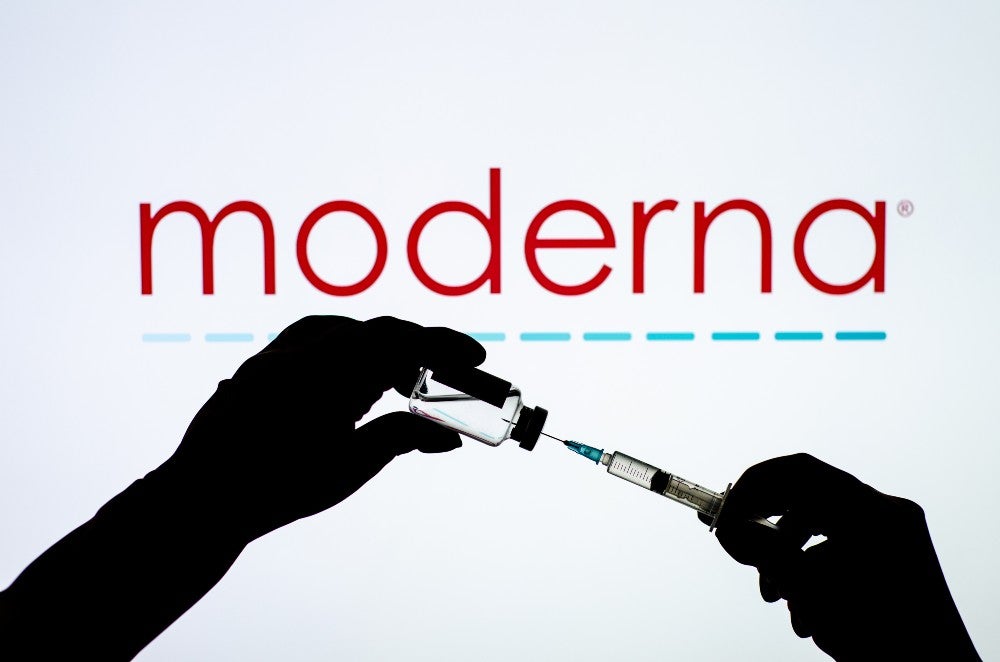In a recent press release, Moderna confirmed that its Phase I/II study examining candidate mRNA-3927 is progressing. The pharmaceutical giant shared that encouraging data showed a decrease in the number of metabolic decompensation events (MDEs) in trials of mRNA-3927, and regulators seemed to support MDE as a primary endpoint for the study. Additionally, Moderna stated that all eligible participants elected to continue to the Open Label Extension study. According to GlobalData’s Pharma Intelligence Center, mRNA-3927 is one of five non-vaccine mRNA therapeutics currently in clinical trial development.
mRNA-3927 targets a rare genetic disorder, propionic acidemia, in which patients cannot process certain parts of proteins and lipids properly. The other four non-vaccine mRNA therapeutics are as follows: BNT-141 by BioNTech, targeting ovarian cancer, bile duct cancer, adenocarcinoma of the gastroesophageal junction, colorectal cancer, pancreatic cancer, gastric cancer, solid tumours; LUNARGSD3/UX053by Ultragenyx, targeting glycogen storage disorder type III, also known as Cori’s Disease; mRNA-3705, Moderna’s second candidate, for methylmalonic acidemia; and OTX-2002 by Omega Therapeutics for hepatocellular carcinoma and solid tumours. According to GlobalData’s analyst consensus forecast, OTX-2002 is projected to have the highest revenue by 2028, regenerating $1.6bn that year. The sales of all five candidates are forecast to reach over $2bn by 2028.
mRNA therapeutics have received increased amounts of attention and funding ever since mRNA vaccines proved effective in curbing the spread of the COVID-19 pandemic. One of the key opinion leaders GlobalData interviewed for the report mRNA Therapeutics Market Overview shared the following thoughts:
“I think that the Covid vaccines have led to a total explosion in the possibilities of using mRNA therapeutics. Before, mRNA therapeutics weren’t really considered to be that commercially viable due to a variety of issues with delivery, [and] with the understanding of how to stabilize them. But clearly, that technology was a decade in the making, and then Covid led to basically an accelerated clinical development environment where it was able to be proven that these vaccines are highly effective. And because the vaccines are highly effective, it also means that you could use this technology to induce transient protein expression in a variety of other areas.”
mRNA is a single-stranded ribonucleic acid that is transcribed from a strand of DNA. It carries the coding information for protein synthesis. mRNA therapeutics involves the delivery of in vitro transcription of mRNA into a target cell, where cellular machinery is then able to translate the mRNA into a functional protein. These proteins can help the immune system prevent or treat certain diseases. With mRNA-3927, propionic acidemia is caused by the deficiency of propionyl-CoA carboxylase, which converts propionyl-CoA to methylmalonyl-CoA. Moderna’s candidate alleviates the condition by activating propionyl-coenzyme A carboxylase.
Propionic acidemia is a rare but devastating genetic disorder. If Moderna’s mRNA-3927 proves successful, the therapy will provide a potential solution for a patient population facing a scarcity of options.

US Tariffs are shifting - will you react or anticipate?
Don’t let policy changes catch you off guard. Stay proactive with real-time data and expert analysis.
By GlobalData





